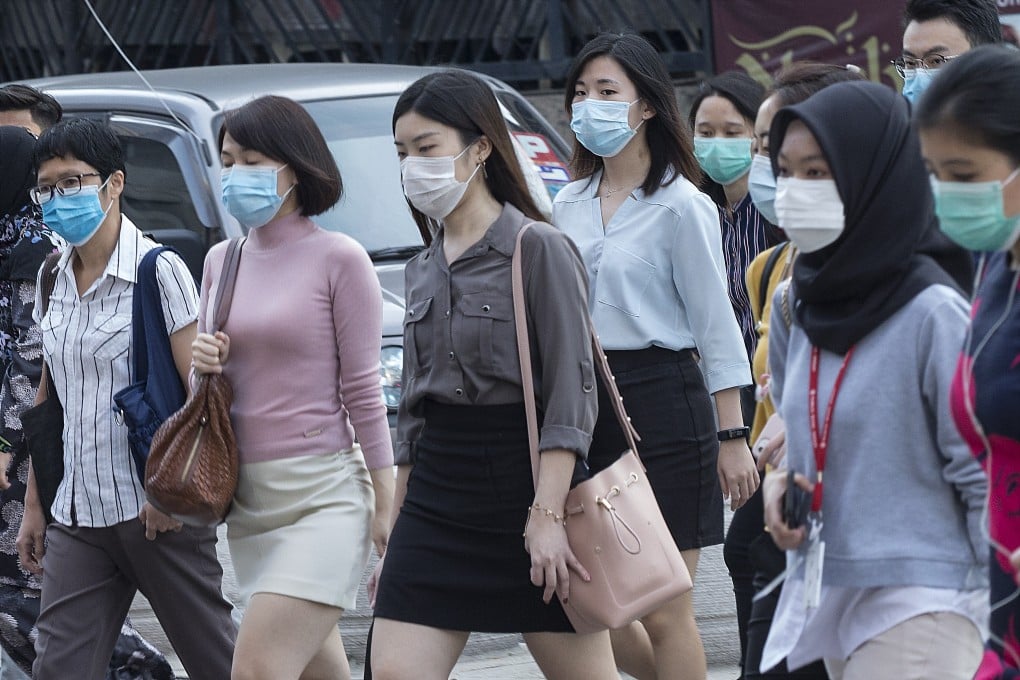Advertisement
Coronavirus: Malaysia gets first batch of Chinese aid to fight virus
- As cases soar close to 1,000, thousands of masks from China have arrived in Kuala Lumpur. Test kits, ventilators and sanitisers will soon be coming too
- Academics say reciprocal aid-giving between the two nations is evidence of their close ties, despite Malaysia’s recent political turmoil
Reading Time:3 minutes
Why you can trust SCMP

Malaysia on Thursday received thousands of masks from long-time ally China as it buckled down for its own fight against the coronavirus as cases soared to 900, making it the hardest hit Southeast Asian nation, amid a two-week partial national lockdown.
In a statement, the Chinese Embassy in Malaysia said that it had sent 5,000 masks and 10,000 face shields to Sungai Buloh hospital where many patients who have tested positive for the Covid-19 disease caused by the virus are being treated.
On Friday, Malaysia said that 100,000 face masks were donated by the China-Asia Economic Development Association. And next week, China will send 3,500 test kits to the country, as well as more supplies such as ventilators and sanitisers when possible, Chinese Ambassador to Malaysia Bai Tian said.
Advertisement
In a Facebook post, Foreign Minister Hishammuddin Hussein thanked China for its help, saying he had only recently written to his Chinese counterpart Wang Yi for help.
“Thank you to the Chinese government for not waiting for a long time to help,” he said.
Advertisement
The two nations, which in 209 celebrated 45 years of friendship and bilateral relations, enjoy close ties, with Malaysia a key country in China’s global belt and road infrastructure initiative, and host to two giant pandas – Xing Xing and Liang Liang – loaned by Beijing in 2014.
Advertisement
Select Voice
Choose your listening speed
Get through articles 2x faster
1.25x
250 WPM
Slow
Average
Fast
1.25x